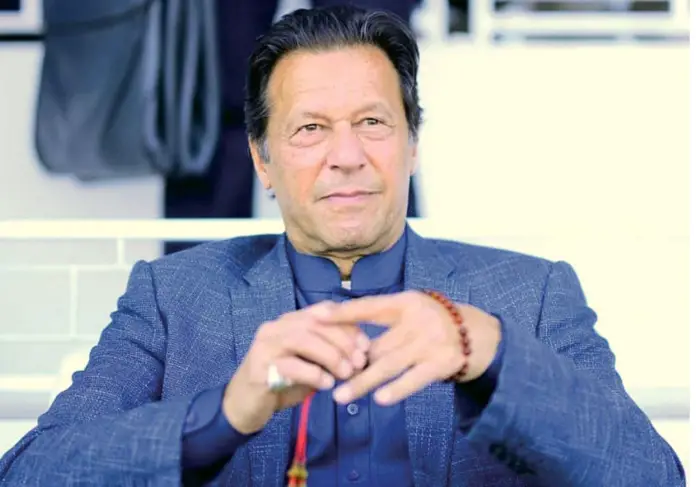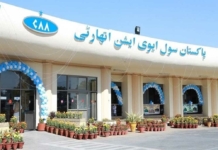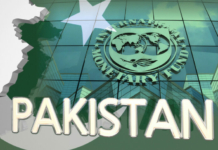The PTI is going quite aggressive these days. Previously, it was confident that the opposition does not have the required majority to oust the prime minister, but some PTI members have openly shown resentment towards the party, and allies are also hesitant to define their position. As for now, PTI has lost 14 votes of its own elected members. The PTI government is on the verge of total collapse, yet its confidence is worth watching. Leading men of PTI are busy name-calling, mocking and provoking the opponents. The primary source of this confidence is the reliance on people’s power.
The PTI is hoping that the aggressive crowd in the parade ground in Islamabad can save the government if the no-confidence motion succeeded; however, it is constitutionally not possible. If we look at history, Pakistani people never saved any prime minister.
On April 17, 1953, Governor-General Malik Ghulam Muhammad dissolved the government of Khawaja Nazimuddin. It is to be noted that people did not come forward to support him.
On August 12, 1955, Mohammad Ali Bogra stepped down after immense pressure from then Governor-General Iskander Mirza. Iskander Mirza also fired Malik Ghulam Mohammad; people did not react.
On September 12, 1956, then-premier Chaudhry Mohammad Ali was removed by his own party after a successful no-confidence motion. Pakistani citizens did not come to his rescue.
Then came December 16, 1957, when another sitting prime minister was removed from his office after another no-confidence motion by the opposition. Pakistani people didn’t bother.
On October 7, 1958, the government of Sir Feroze Khan Noon was dismissed as a result of martial law by Iskander Mirza. No resistance from people as usual.
We never forgot what happened on July 5, 1977, when elected PM Zulfikar Ali Bhutto was dismissed by General Ziaul Haq. Bhutto was a massively popular leader at that time. He was not only dismissed but hanged to death in a case as well. But even the supporters of Bhutto could not save him from his fate.
On August 6, 1990, Benazir Bhutto, the daughter of Zulfikar Ali Bhutto, was removed from her office by president Ghulam Ishaq Khan. The first-ever female prime minister of a Muslim country called this act illegal and unconstitutional. The beloved Bhutto, who was elected by a massive majority, was dismissed after 20 months but her supporters did not protest. She returned to power again in elections 1993 and was dismissed by Farooq Laghari on November 5, 1996.
Then on April 18, 1993, president Ghulam Ishaq dismisses another elected premier Nawaz Sharif by using 58-2B. But this time, the premier gets his office back. He does not ask his supporters to storm the capital; instead, he challenges the decision in the Supreme Court and the bench gives the verdict in his favour, restoring his government.
Cut to October 12, 1999, he was again dismissed, and this time by General Musharaf. This was a crucial time for Sharif. He was facing a trial for kidnapping, attempt to murder, hijacking, terrorism and corruption which could be enough for his execution. Who helped him? His friends in Saudi Arabia. His personal ties with the kingdom and the pressure from Bill Clinton saved him from execution, not his supporters. He was the prime minister with nuclear energy in his portfolio, yet the people of Pakistan could not help him.
And people are not to be blamed for this. This is not their job. The only way a supporter can help its leader is by voting. A supporter can only get up early in the morning, stand in a hectic queue and vote for his leader, no matter how many plates of rice or how many packs of free Banaspati are there to tempt him. This is the only constitutional way for him to participate. Once the majority is secured, the rest is up to the leader, not the people.
People can neither save a prime minister nor remove him. How can we forget the infamous Azadi March? Imran Khan tried to pressurise Nawaz Sharif into resigning. But he did not give up despite a 126-day long sit-in in the capital. All those supporters of Imran Khan were unable to terrify Nawaz. How can PTI think that after eight years people will come forward to rescue the government at parade ground when there is a growing economic crisis, the inflation rate is soaring, and the dollar is about to reach Rs200?
And even if one million people do come to the parade ground, what will they do? What can they do other than wreck the infrastructure in the capital? Nothing. No matter how much destruction they cause, they cannot undo the no-confidence motion.
Therefore, instead of encouraging his supporters for a clash in the capital against his disgruntled members, peacefully negotiating with them is the right thing to do. PTI is highly dependent on its elected members and allies, so they need to get them on board.
They will be the ones voting for no-confidence, not the common citizens.







